This Is How Much Water You Need to Drink to Stay Hydrated

As the temperature rises, staying hydrated becomes more and more important. However, figuring out how much water to drink to stay hydrated can be a little confusing. If you feel dehydrated, you're not alone. According to estimates, 75 percent of Americans are chronically dehydrated. Here is everything you need to know about hydration, according to health organizations, research and Body Network's Resident RDN, The Diet Diva Tara Collingwood.
Men Should Drink This Much Water, a US Health Organization Says
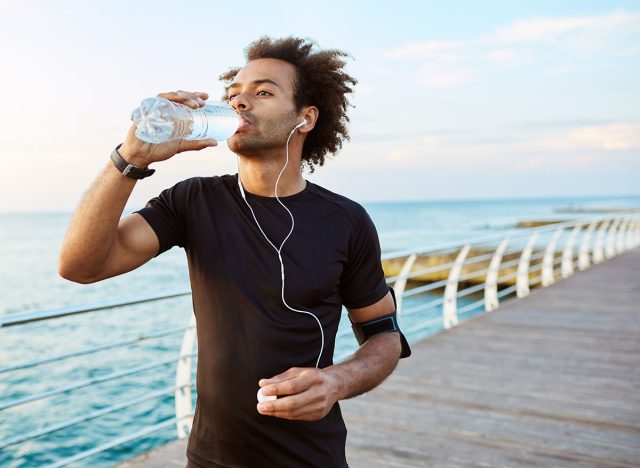
How much water do men need to drink? According to the National Academy of Medicine, men should drink at least three liters (nearly 13 cups) of water per day.
Women Should Drink This Much Water
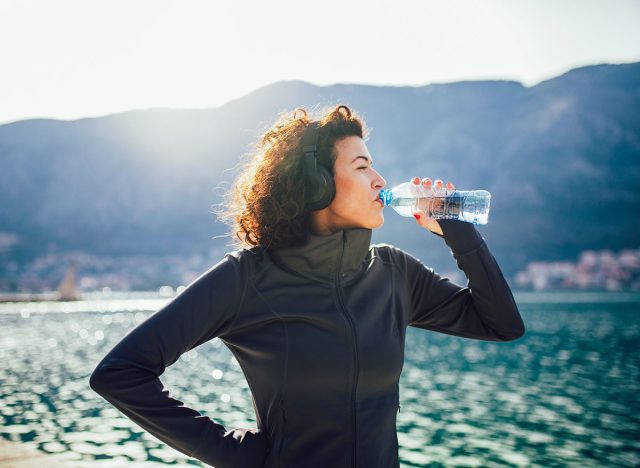
As for women, the number is a little lower. The National Academy of Medicine estimates that women should drink at least 2.2 liters (just over nine cups) per day.
Body Network's Expert Weighs In
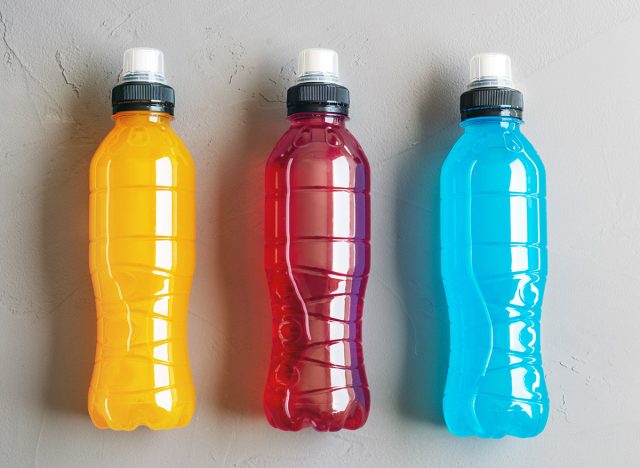
Body Network's Resident RDN, Tara Collingwood, MS, RDN, CSSD, LD/N, ACSM-CPT, a Board Certified Sports Dietitian and co-author of the Flat Belly Cookbook for Dummies supports these estimates. However, "remember that this is total FLUID not just water," she says. "All fluids can count so that means coffee, tea, milk, juice, etc. all count for these amounts."
RELATED: 7 Breakthrough Anti-Aging Strategies From a Gerontology Expert
Climate and Temperature Impact Hydration

What else impacts hydration? According to Collingwood, climate and temperature should be taken into consideration. "If it is very hot you can dehydrate easily because of loss of sweat," she says. "In addition, sweat cools you down so hot environments increase risk of heat stroke and heat exhaustion."
So Does Age

Age also impacts hydration, according to Collingwood. "The thirst mechanism gets weaker for older adults, so they cannot rely on it to remember to drink," she says.
You Also Need to Consider Your Activity Level
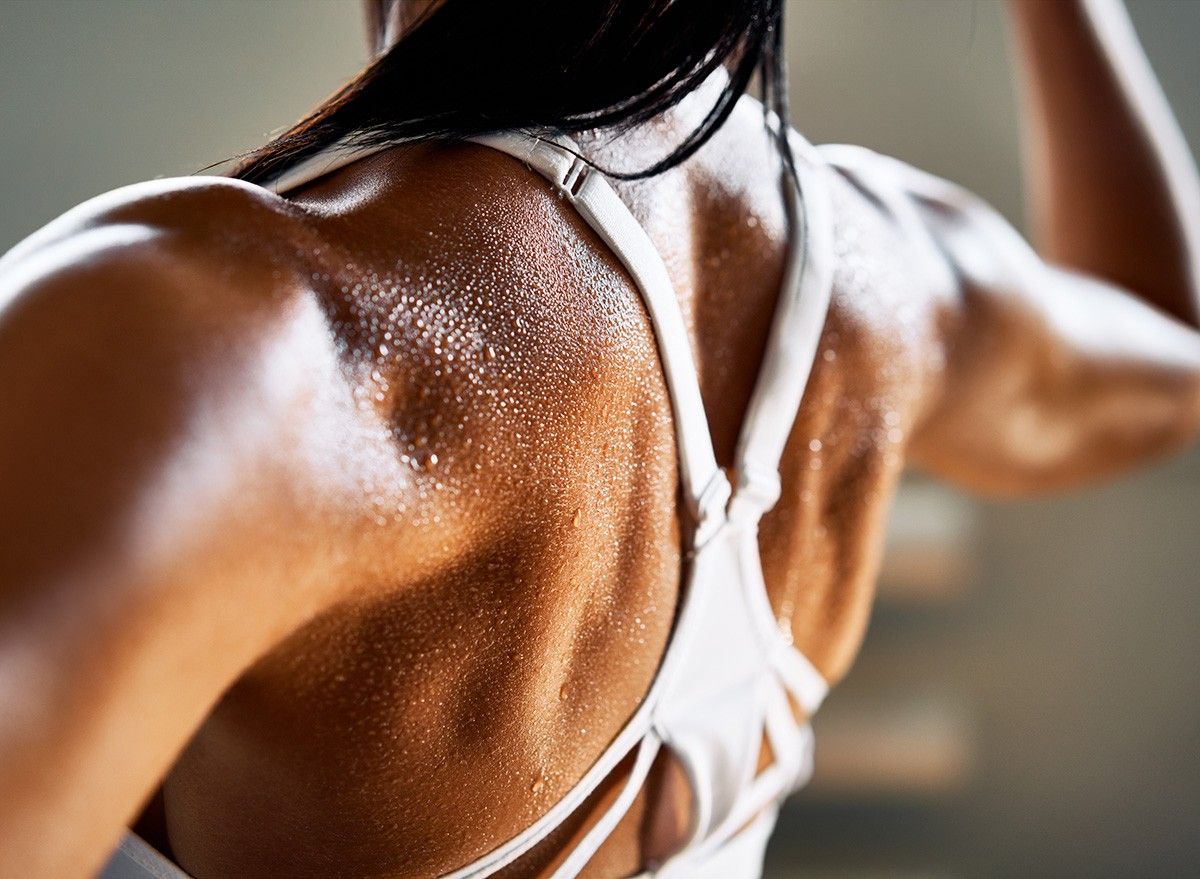
Activity level also plays a major role in terms of how much you need to drink to stay hydrated. "The more you move, the heavier you breathe and the more you sweat, both of these things increase hydration needs significantly," says Collingwood.
RELATED: 20 Things You Need to Know About Ozempic and Weight Loss
And, Any Medications You Are On
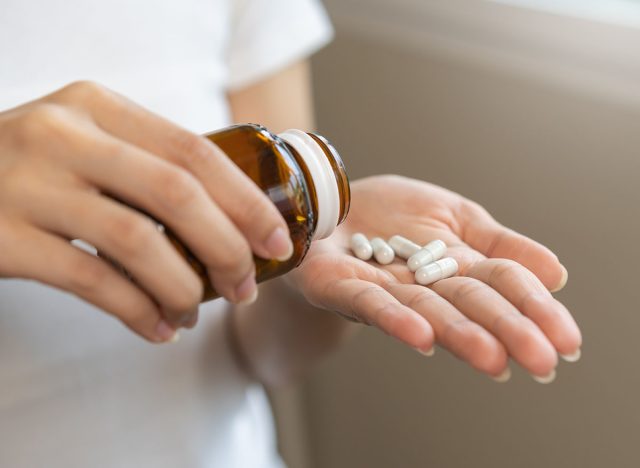
If you are taking certain medications, it could also impact hydration. "Some medications shut off the thirst mechanism, others have dry mouth as a side effect and require patients to drink more to be comfortable," explains Collingwood.
What Happens If You Don't Drink Enough Water?
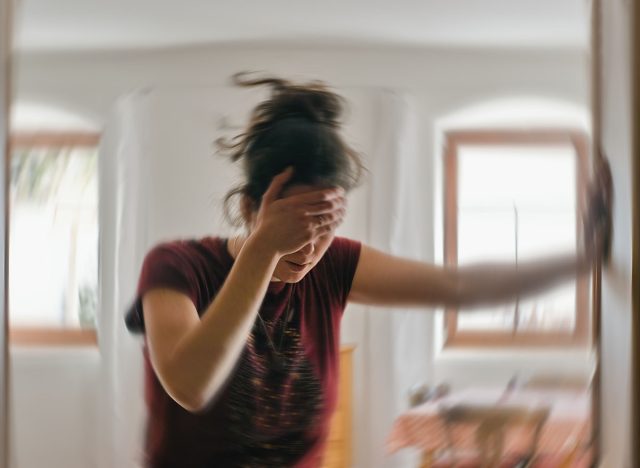
What happens if you don't drink enough water? Collingwood explains that you may experience a number of symptoms, including headache, fatigue, dizziness, muscle cramps, nausea, and vomiting.
You Can Over Hydrated
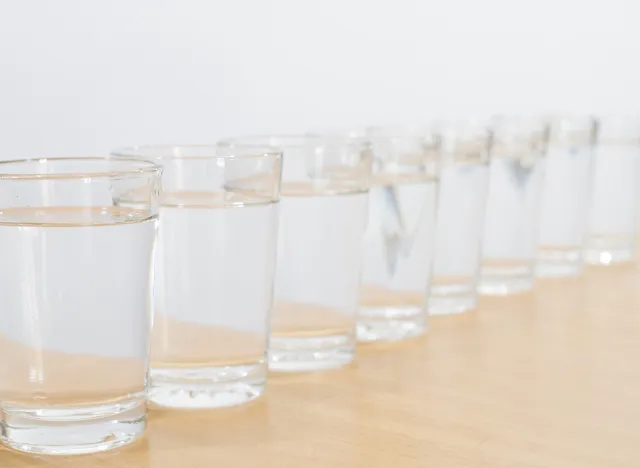
Overhydration is an actual thing. Frequent urination, dizziness, confusion, muscle weakness, and even seizures "in extreme cases of hyponatremia which is when you sweat a lot and drink a lot of water but don't replace the electrolytes," are possible side effects, says Collingwood.
RELATED: This Is Exactly How to Lose Body Fat This Year
When Should You Drink Water
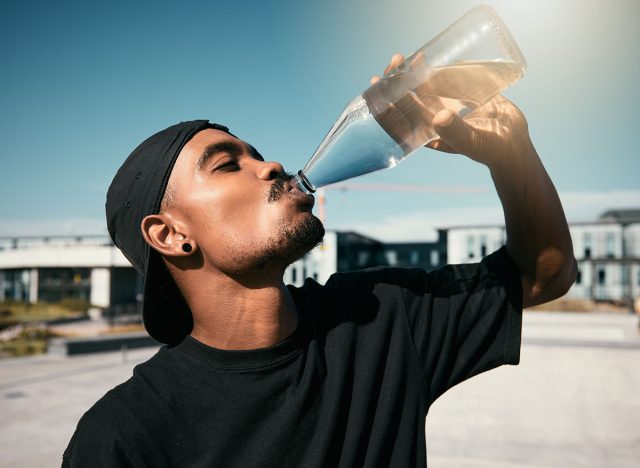
What time of the day should you drink water? "You should drink water all day long, but especially first thing in the morning to start hydrating after the overnight fast," she concludes.
💪🔥Body Booster: Women should drink nearly 9 cups and men 13 cups of water daily.




